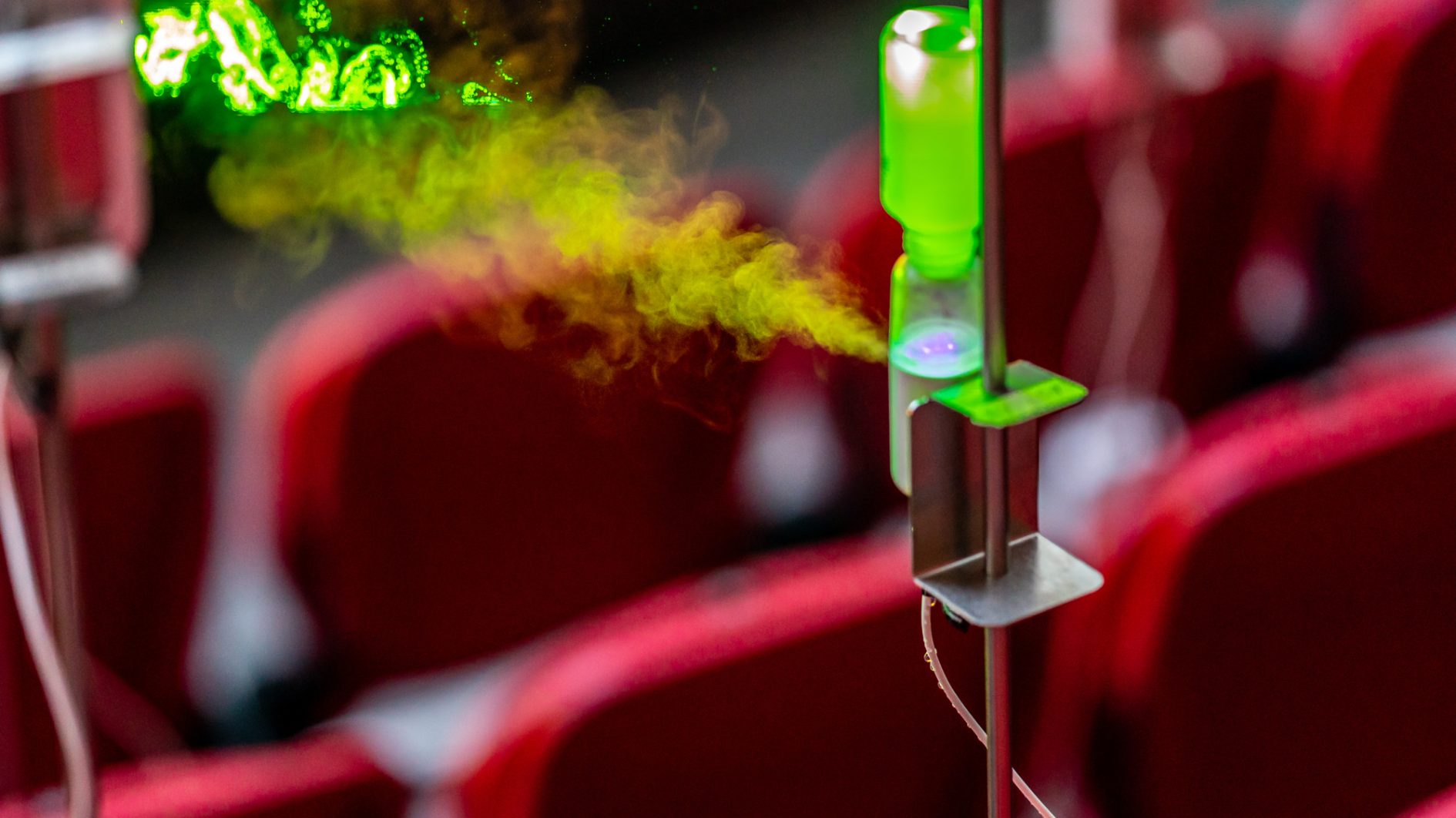Grootschalig onderzoek TU Eindhoven naar aerosolen en corona op sportlocaties

Een wetenschappelijk onderzoeksproject onder leiding van de Technische Universiteit Eindhoven (TU/e) naar aerosolen en COVID-19 moet fundamentele kennis opleveren zodat sportgebouwen veilig en toegankelijk zijn voor publiek tijdens pandemieën. Onderzocht wordt hoe aerosolen, en daarmee mogelijk ook het coronavirus, zich verspreiden op sportlocaties. Getest wordt onder andere in de Johan Cruijff ArenA en sportcentra CTO Papendal en Den Haag en Maaspoort Sports and Events.
Het coronavirus kan zich op directe wijze, via uitwisseling van grote speekseldruppels, en op indirecte wijze, via besmette oppervlakken, verspreiden. Overdracht vindt waarschijnlijk ook plaats via aerosolen. Deze hele kleine speekseldruppels kunnen in de lucht blijven hangen en grotere afstanden dan 1,5 meter afleggen. Verspreiding van het virus via aerosolen zou daardoor mogelijk zijn bij sporters of toeschouwers in een stadion of een sporthal.
Generatoren en sensoren
In de Johan Cruijff ArenA worden eerst metingen gedaan zonder publiek, met kunstmatige aerosolgeneratoren op de tribune. Deze generatoren verspreiden een vergelijkbaar aantal aerosolen als enthousiaste voetbalsupporters. Daartussen zijn diversen sensoren geplaatst om een goed beeld te krijgen van de verspreiding van hele kleine speekseldruppels.
Tot slot wordt onderzocht of aerosolen uit de lucht gefilterd kunnen worden met een luchtreinigingssysteem met plasma- , glasvezel- en koolstoffilters, dat naast de stoelrijen is geplaatst. TU/e, de ArenA, Plasmamade en Ajax willen, zodra de overheid dit toestaat, ook graag testen met publiek. De hoop is dat deze tests in januari kunnen plaatsvinden. Het onderzoek in de ArenA staat onder leiding van TU/e-professor Bert Blocken van de faculteit Built Environment, expert op het gebied van luchtstromingen.
Infectierisico
Verder kijken de onderzoekers naar de dosis en het levensduur van het virus in aerosolen, maar ook het infectierisico, de druppel- en aerosolentransmissie door individuen, de aerosolenconcentraties in sportgebouwen en de bewegingen van mensenmassa’s in sportgebouwen. Daarnaast wordt een algemene risicoanalysemethodologie ontwikkeld die de sportsector en de overheid kan helpen hun richtlijnen en protocollen verder te verfijnen. Naar verwachting zijn begin 2021 de eerste resultaten beschikbaar.
Samenwerking
Het onderzoeksproject vindt plaats in samenwerking met het Leids Universitair Medisch Centrum, de Universiteit Utrecht, de Johannes Kepler Universiteit in Linz, PlasmaMade, GO2Sure en de testlocaties Johan Cruijff ArenA, Maaspoort Sports and Events via Heroes Den Bosch en CTO Papendal en CTO Den Haag.
Het samenwerkingsproject is medegefinancierd met een PPS-toeslag. Die wordt door Health~Holland, Topsector Life Sciences & Health, beschikbaar gesteld ter stimulering van publiek-private samenwerkingen. Het onderzoek is ook mede mogelijk gemaakt door Sportinnovator.
Johan Cruijff ArenA Amsterdam test venue for dispersion and removal of aerosols
A new scientific research project headed by Eindhoven University of Technology (TU/e) focusing on aerosols and COVID-19 should provide fundamental knowledge leading to the safe reopening of sports accommodations during pandemics. The project investigates how aerosols, possibly carrying the corona virus, spread inside sports accommodations. The test venues are the Johan Cruijff ArenA, the Maasport Sports and Events and sports centers CTO Papendal and The Hague.
COVID-19 can be transmitted directly, via large droplet spray, and indirectly, via infected surfaces. It is likely that transmission can also occur via aerosols. These small saliva droplets and their residues can remain suspended in the air for a long time and travel much farther than 1.5 m. This implies that COVID-19 transmission via aerosols could be possible for sporters and spectactors in a stadium or an indoor sports hall.
Generators and sensors
The measurements in the Johan Cruijff ArenA in Amsterdam will first be performed without audience, using artificial aerosol generators on the stands. These generators will disperse aerosol amounts similar to enthusiastic football supporters. Between the generators, 184 aerosol particle sensors are mounted to provide insight into the spreading of the small saliva aerosols.
Finally, large-scale air cleaning systems will be employed to analyze to what extent the aerosols can be removed from the stadium air with systems that combine cold plasma, glass fiber, electrostatic precipitation and active carbon and that are placed next to the seat rows. Dependent on permission by the Dutch authorities, TU/e, Johan Cruijff ArenA, Plasmamade and Ajax also want to test with a real-life audience of spectators. They hope these tests can be performed in January. The research in the ArenA stadion is led by TU/e professor Bert Blocken of the department of the Built Environment, an expert in the field of air flows.
Infection risk
The researchers also focus on the viability and survivability of the virus in aerosols, the infection risk, the transmission by large droplet spray versus aerosol inhalation, the aerosol concentration build-up and removal in sports accommodations and the movement of large spectator masses inside and around the accommodations.
In addition, a general risk analysis methodology will be developed that can help the sports organizations and government authorities to further finetune their guidelines and protocols. First results are expected early 2021.
Collaboration
The research project is performed in collaboration with Leiden University Medical Center, Utrecht University, the Johannes Kepler University in Linz, PlasmaMade, GO2Sure and the test venues Johan Cruijff ArenA, Maaspoort Sports and Events via Heroes Den Bosch and the top sports centers CTO Papendal and CTO The Hague.
The collaboration project is co-funded by the PPP Allowance made available by Health~Holland, Top Sector Life Sciences & Health, to stimulate public-private partnerships. The project is also enabled by Sportinnovator.


